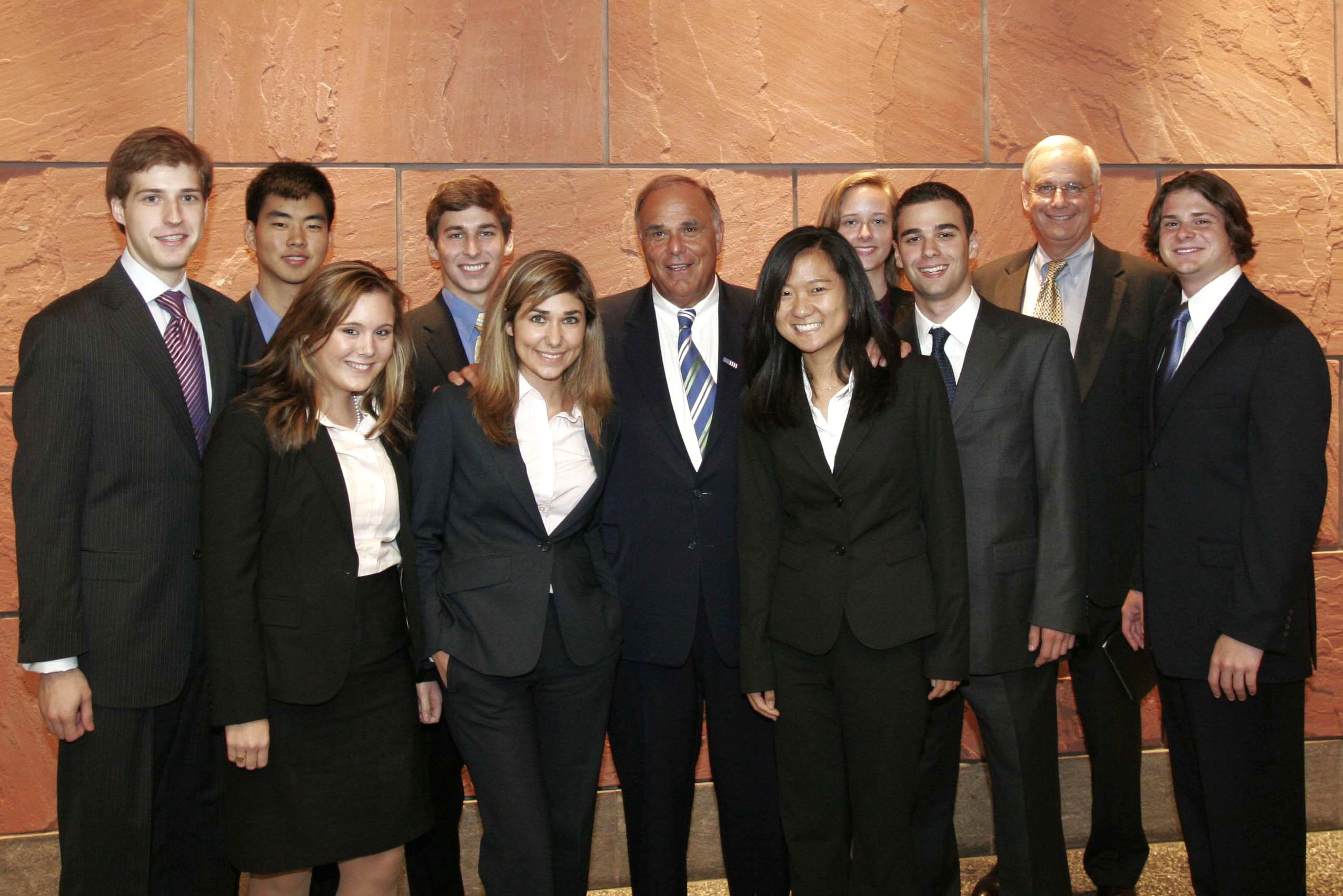|
Exploring Energy Solutions
On Friday, September 14, John Quigley met with the Policy Advisors to discuss options and opportunities to solve America’s energy and environmental problems. Mr. Quigley’s experience as Legislative Director of the PA Department of Conservation and Natural Resources, former Government Relations Manager for environmental group PennFuture, and former Mayor of the City of Hazleton gave the audience a memorable view of what policymakers and citizens must do to confront our energy challenges.
Exploring Poverty Solutions
On Thursday, September 20, Robert Inman met with the Policy Advisors to discuss options and opportunities to solve America’s domestic poverty and urban development problems. Dr. Inman’s experience as Vice Dean of Wharton’s Doctoral Programs, Professor of Public Finance, and a key advisor to incoming Philadelphia Mayor Michael Nutter gave the audience an in-depth understanding of grassroots ideas and practical policies that WPBA can advocate and create throughout the year in education, crime prevention, and cleanliness. |

On the evening of September 12th, Pennsylvania Governor Edward G. Rendell spoke at UPenn's Wharton School of Business
on "The Future of Energy."
Pennsylvania Governor Edward G. Rendell stood before the Wharton Politics & Business Association. He had been speaking for over a half-hour, but you wouldn’t know it to see the sea of eyes transfixed on his every word.
“How many of you own cars?” asked the Governor. A wave of hands went up.
"How many own cars with flex technology?" he continued, referring to new environmentally-friendly vehicles. Not a single hand. The Governor chuckled.
One more time, he prodded, “How many own SUVs?”
At the sight of dozens of hands raised, Governor Rendell had only one reply: "Sell them!"
Read more...
|

Should the government offer incentives for energy conservation or sit back and wait for the market to do it through price signals?
For the Free Market
Energy conservation is a vital part of the massive effort it will take to solve the global energy and environmental crisis. So it seems right, even morally imperative, for a government to encourage conservation through incentives such as subsidies and taxes. In fact, there are already many such incentives in the U.S., such as energy rebates and state gas taxes of about twenty cents per gallon. But should there be a more aggressive set of government incentives to cut energy consumption?
Incentives can be powerful and valuable. The nation owes its bountiful creativity to incentives in the form of patents and copyrights. But incentives specifically designed to influence fundamental market forces often have unforeseen consequences that outweigh their benefits or create new problems. For example, subsidies that allow American farmers to work profitably put poor farmers in developing countries at a tremendous disadvantage. Incentives are clearly a double-edged sword and should be used only when absolutely necessary.
Read more...
|
For Incentives
I hate to break it to you, but the market is anything but "free". Americans already pay for $17 billion in subsidies to oil companies each year. Add in environmental damage, illness, and the cost of protecting oil fields in the Middle East, and the average taxpayer shells out approximately $2,700 for Big Oil. If it weren’t so sad, it would be comical that we really pay about $13 for each gallon of gas.
I don’t want to distort the market anymore than the next guy. Incentives are definitely a dangerous business. We needn’t look any further than the current energy market to see that. I’m saying it’s time to fix the market—level the playing field again, so to speak.
Still, you can wait for the market to fix itself, if you like. When the Arab oil embargo hit in 1973, it became obvious that we need to wean ourselves off foreign oil. With the Persian Gulf War and the current conflict in Iraq, it has become imperative. Yet, in 1973 imports were 35% of our oil use; today, they are 60%. How’s that Invisible Hand working so far?
Read more...
|
|
|
|
Fixing the Energy Market by John Quigley
A while back, President George W. Bush famously proclaimed that "America is addicted to oil." Such self-evident truths are rarely uttered in the halls of government. But however obvious the pronouncement, admission is the addict’s first step toward recovery. How do we get the addict moving down the path to sobriety?
Ironically, the ultimate and best answer to that question would appeal to the President and hardest rock-ribbed conservative: unleash the free market.
But hasn’t the Invisible Hand provided the cheap oil high that has caused the addiction in the first place? Didn’t the free market get us into this mess?
Only if you believe in fairy tales.
Read more...
|


